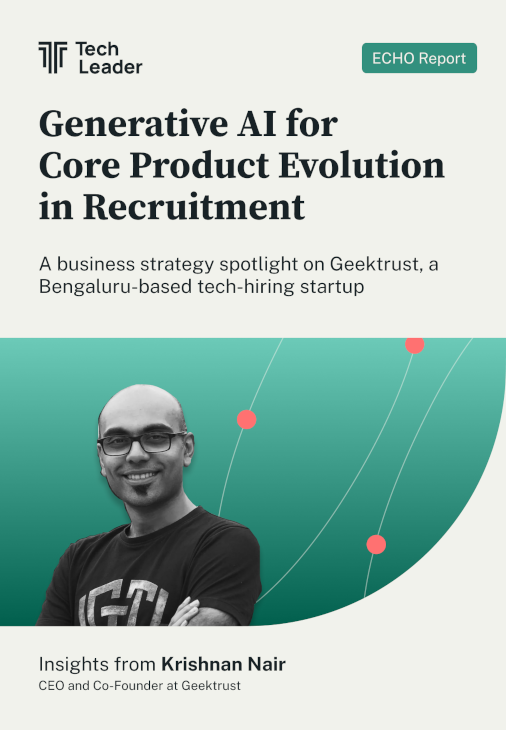Summary
Agentic AI is having its breakout moment. Investment in AI agent startups nearly tripled in 2024, signaling a major turning point for this fast-evolving category of enterprise automation. TechLeader breaks down these investment trends from the rise of horizontal agents like Sierra, Cursor, and Glean to the emerging wave of vertical AI innovation across regulated industries. We explore what’s driving enterprise adoption, where the challenges lie, and why 2025 could be the year Agentic AI moves from pilot to priority.
Agentic AI is dominating conversation in boardrooms across the world. From sales prospecting to compliance decisioning, AI agents are LLM-based autonomous software systems that can achieve specific goals on behalf of users with minimal human intervention.
The landscape for agent infrastructure and applications is exploding, with over half of the companies in this market founded since 2023.So, what does the future hold for this rapidly expanding field? TechLeader breaks down the latest CB Insights report to find out what the investment trends in Agentic AI are, and what more to watch out for in 2025 and beyond.
What are the Investment Trends in Agentic AI?
According to a CB Insights report named “What’s Next for AI Agents?” [1], funding to Agentic AI startups saw funding nearly triple to $3.8bn in 2024, up from $1.3bn in 2023. Over half of the companies in the market have been founded since 2023, demonstrating the rapidly growing landscape for agent infrastructure and applications.
Mentions of AI agents on corporate earnings calls grew four times on a quarterly basis in Q4 of 2024, with this pace forecasted to double again in the first quarter of 2025.
.png)
Horizontal AI Agents Dominating the Market
The CB Insights report, which mined data from more than 170 Agentic AI startups, found that presently, the horizontal AI agent landscape has captured nearly half of all equity deals in the private AI agents space since 2020.
This market layer which includes areas like customer support and coding has seen several promising horizontal players demonstrating notable traction based on revenue as of February 27, 2025. These include:
- Sierra [2], a company in customer support, reported $20M in revenue.
- Cursor [3], focused on software development, reported $100M in revenue.
- Glean [4], in enterprise workflows, also reported $100M in revenue.
Vertical AI Agents Landscape Set to Boom
The report highlights that while horizontal AI agent applications are currently more mature in terms of deployment and commercialization, the next wave of opportunity lies in vertical, industry-specific AI solutions.
These specialized AI agents for sectors like healthcare and financial services are currently "more nascent," primarily in "Emerging" and "Validating" stages of commercial maturity. However, they are "primed for growth," with increasing activity and an expected move into the "Deploying" phase in the coming year.
This crucial shift is driven by Agentic AI startups wisely "carving out niches by solving for industry-specific customer problems.” This is vital in fields demanding "strict regulatory scrutiny and data sensitivity," where generic AI won't suffice.
Key examples include:
- Hippocratic AI [5], in healthcare, highlighted for its essential integrations and explainability.
- Norm AI [6], which specifically focuses on AI agents for compliance workflows and has attracted significant investment from entities like Citi Ventures, New York Life Ventures, and TIAA.
Enterprises Embrace the Agentic AI Revolution
The world of AI agents is rapidly evolving beyond mere experimentation, as enterprises are now actively shifting towards full-scale implementation.
A December 2024 survey by CB Insights revealed that a significant 63% of organizations are "placing a lot of importance" on AI agents for the next 12 months. While all surveyed organizations admitted they are at least experimenting, signaling a major move towards deployment.
Incumbent enterprise software companies are already integrating AI agents into their core products and internal operations. A prime example is Twilio, which uses AI agents to resolve customer support inquiries and vet inbound sales leads.
However, this transition isn't without its challenges. Enterprises face hurdles, specifically citing concerns around:
- Reliability & security (47% of respondents): Addressing data privacy and ensuring consistent accuracy, especially for customer-facing applications.
- Implementation (41%): Overcoming technical difficulties in integrating agents with complex legacy systems and diverse data sources.
- Talent (35%): Needing both technical expertise for deployment and strong change management for employee adoption.
These concerns, however, also present clear opportunities for vendors. Approaches like a "human-in-the-loop" strategy can mitigate risks by enabling oversight and co-creation with AI agents. Furthermore, successful agent deployment critically depends on solid data infrastructure. Organizations that can effectively manage their knowledge bases—both internal and external—will be best positioned to truly leverage AI agents, powering increasingly reliable and effective solutions.
The Path Ahead
With funding surging, startups scaling, and enterprise adoption accelerating, the agentic AI momentum is undeniable. The focus from here on will be on how organizations will implement AI agents in complex environments, particularly those with regulatory and data sensitivity requirements. For business leaders, 2025 is a key window to shape how these technologies deliver impact at scale.
At TechLeader, we recognize the weight of these decisions for today’s tech executives. This is why we've created an exclusive suite of offerings built specifically for tech leaders, innovators, and builders in the enterprise and generative AI space.
- Echo Reports (unfiltered, deep-dive research)
- TechLeader Voices (straight-from-the-source expert interviews)
- TechLeader Events (where people building the future meet)
Read the latest issue of TechLeader Voices to explore what’s happening in cybersecurity and why Agentic AI and Explainable AI are critical for resilient, transparent, and intelligent systems.
TechLeader Voices is everything tech leaders need to stay ahead. Subscribe to our free newsletter and stay ahead of what’s shaping enterprise tech."
%20(1).png)



.svg)





.png)



.JPG)
.svg)